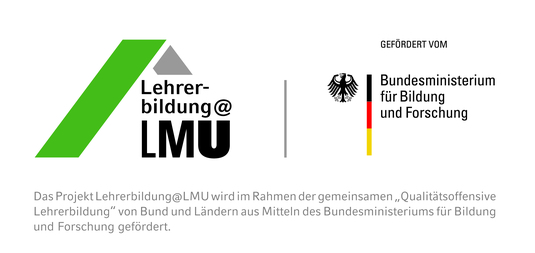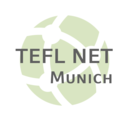Keynote Speakers
Michael Byram, Durham University, UK
Internationalism and Competences for Democratic Culture in Foreign Language Teaching
Foreign language teaching is by its nature international but I will suggest in this talk that it needs to be internationalist. I will also argue that foreign language teaching can be enriched by reference to citizenship education, presenting examples of this in practice. Finally, I will relate these points to the Council of Europe’s Reference Framework of Competences for Democratic Culture to show how language teaching can become part of an interdisciplinary approach to intercultural and democratic dialogue.
William Gaudelli, Columbia University, USA
Belonging in an Age of Global Migration
Belonging is a core dimension of what it means to be human and a key aspect of contemporary migration. As immigration increases exponentially, identity is shifting within new locales, both among those arriving and for those with a sense of community in those places of arrival. Hybridity and intersectionality push against discourses of solidified and singular identities in ways that reconfigure belonging. The economic dimensions of belonging, too, force a more robust conversation about a world political order that can accommodate migrations of many types. Governance, disaggregated boundaries of justice and the prospects of an agonistic global system all portend changes in how this political order might take shape. Education, increasingly, must play a critical role in relocating populations, both at the level of receiving others so their human right to dignity and flourishing are upheld while surfacing creative and realistic conversations among young people about the need and dimensions of a world political order.
Glynda Hull, University of Berkeley, USA
Whose Language, Whose Globe? Envisioning Cosmopolitan Pedagogies in Digital Spaces
More interconnected than ever before, linked by digital technologies and immersed in transnational flows of media, texts, and peoples, our world is yet more divided, both within and across nations and communities, and increasingly riven by cultural, political, and ideological differences and economic inequalities. Cradled in this unsettling paradox, it is perhaps not surprising that discussions of “global” citizenship have come to the fore among critical educators, or that academics in several disciplines feel now compelled to theorize the new configurations of contact that take place in “super-diverse”, plurilingual settings, or what might be called “cosmopolitan spaces.” The new normal for most people around the globe may increasingly become the capacity to draw on multiple linguistic and semiotic repertoires to communicate in heterogeneous communities, to enact fluid and multiple identities, and to develop a comfort level with and tolerance for “otherness.” What do such shifts entail for language and literacy educators? To address this question the presentation will draw on recent research on cross-community and cross-national digital exchanges in order to posit that digital tools and pedagogical spaces can themselves be intentionally configured to create critical and collective global subjects.
Liz Jackson, University of Hong Kong, China
Global Citizenship: Allegiance to What, Exactly?
‘Globalisation’ is a recent concept. Today, schools are expected to teach youth about globalisation and prepare them to face its threats and take advantage of its opportunities. There are diverse orientations toward globalisation, however. Debates over globalisation’s impact filter down into controversies over the role of globalisation in education. How much or what to teach, for sustainable development, neoliberal economic globalisation, or what Nussbaum described as ‘compassionate global citizenship’ is an open question today. Tension also emerges with the use of the term ‘global citizenship’, with its reconceptualisation of nation-state citizenship in terms of the global. The slogan, ‘think global, act local’ and other variants of ‘glocalism’ contrast these contexts while encouraging their harmonisation. This lecture examines globalisation and different orientations toward it as they relate to education. It considers the extent to which various global orientations are emphasised as part of civic education, particularly in light of the competing influence of nationally oriented aims, goals, and orientations. The lecture concludes that strong messages of cosmopolitan global civic allegiance are unlikely to reach students, in contrast to more nationally oriented, neoliberal global citizenship themes.
Claire Kramsch, University of Berkeley, USA
Global citizens or global consumers? Reframing FL education in the digital age
In 2005 I jokingly asked some American colleagues at a School of Education in the United States: “What are you preparing school children to be: good citizens or good consumers?” I was surprised to hear them respond without a second of hesitation and in total seriousness: “Good consumers, of course. Who knows what a good citizen is?” Their answer gave me a lot to think about. What are we teaching foreign languages for: to enable students to have fun communicating with peers on social media? To gain a deeper understanding of one another across linguistic, national, ethnic, gendered boundaries? To gain a knowledge of history and civics? To become more enlightened tourists? More successful business executives? The usual answer is a smile and then: “All of the above!”, but this is only a way of dodging the question.
In this paper I take a theory of symbolic power to reframe the foreign language problem in an ecological perspective. Not: how can we teach standard national linguistic systems in a world that is now globally and digitally interconnected? But: how can we recast the symbolic value attached to individual languages in their respective cultural contexts into the symbolic value attached to the use of human meaning making practices, whether it be in the political, the cultural, or the economic realm of human activity? How can we teach individual languages as case studies for teaching Language and its incredible symbolic power?
Greg Misiaszek, Beijing Normal University, China
Critical Pedagogies for Global, Environmental Citizenship:Teaching Ecopedagogical Literacies through Local to Planetary Citizenships
Dr. Misiaszek will problem-pose how can we teach for better “reading and re-reading” the world to end social and environmental violence holistically throughout the world – for all societies, all populations, and Earth overall. This literacy, needing the grounding of ecopedagogy(ies), is more essential than ever before with intensifying globalization and post-truthism. Towards this end, the keynote will examine the (dis)connections between citizenship spheres from local to planetary (i.e., citizenships) and environmental pedagogies, with particular attention to ecopedagogy and Global Citizenship and its Education (GC/E). Plural in definition, all ecopedagogies are grounded in critical theories, Freirean Pedagogy, and transformability to construct praxis within social-environmental justice models. Ecopedagogy, framed in this keynote, centers on deepening and widening persons’ understanding of the connections between environmental and social violence. Exploring how concepts of citizenships are affected by globalizations (plural indicating processes from below and from above), Dr. Misiaszek will discuss how environmental pedagogues must center the teaching of ecopedagogical literacies for learners to critically deconstruct the politics of environmental violence within and across citizenships.
Environmental pedagogies often fail by centering teaching on learning about environmental issues rather than praxis to determine necessary environmental actions, prioritizing the transfer of knowledge on environmentalism rather than reading how to better live within the World (i.e. societies) and Earth (i.e., all that makes up Earth, organic and non-organic) to truly achieve sustainability/balance (Misiaszek, 2011, 2015, 2018; Misiaszek & Torres, forthcoming (2018)). Ecopedagogical literacies are essential to determine socio-environmental injustices, to deepen and widen understanding of the politics of these injustices, to determine which populations most suffer from environmental violence that often coincides with socio-historic oppression (e.g., gender, race, neo-/colonialism, sexual orientation), to determine world-Earth balance, and problematize these and other aspects to determine possible solutions to overcome the limit situations, as termed by Paulo Freire (Misiaszek, 2018; Misiaszek & Torres, forthcoming (2018)). Within citizenships, the question is how do structures of citizenship within an increasingly globalized world help to counter or, opposingly, sustain/increase socio-environmental violence, as well as what are the roles of education towards these opposite ends?
Misiaszek will argue that it is only through critical citizenship and environmental pedagogies that we can deepen and widen our understandings on how environmental issues are contextually experienced and perceived locally, utilizing various theoretical lenses centering on globalizations, colonialism, socio-economics, gender, race, ethnicities, nationalities, Indigenous issues, spiritualties, and other socio-historical aspects. Included in the discussion will be how is “development”, “sustainability” and “sustainable development” framed within anthropocentric citizenship spheres (i.e., local to global citizenships) to planetary spheres (i.e., all of Earth, including the anthropocentric sphere). Dr. Misiaszek will problematize that if education is for development (or progress) how do we define “development” and who is “development” for, largely constructed with who do we care about – within aspects of citizenship, who do we consider fellow citizens? The “who” is plural and can be, and is taught as within ecopedagogies, as any entity(ies) within the planetary sphere.
Hugh Starkey, University College London, UK
Cosmopolitan Citizenship and Language Learning
Language teachers and citizenship educators have much to learn from each other. They may aspire to promote the universal humanist values and norms that define cosmopolitanism. Education for citizenship and so-called ‘foreign’ language teaching are being transformed in the context of globalization. Both have their roots in the state formation and nation building projects of the 19th century. Citizenship education has traditionally focused on integrating citizens into a national polity. Foreign languages are understood in opposition to a national language, in fact reinforcing its prestige. Globalisation, migration and multilingualism have profoundly challenged the salience of a single national identity. Flexible and multiple identities are the norm. Both citizenship and language educators may be conceptually constrained by attention to the international. This encourages a diplomatic perspective where speakers are ascribed a single national identity. Education for cosmopolitan citizenship shifts the focus to intercultural interactions between people in their complexity.
This conference was made possible through the support of the following institutions:




